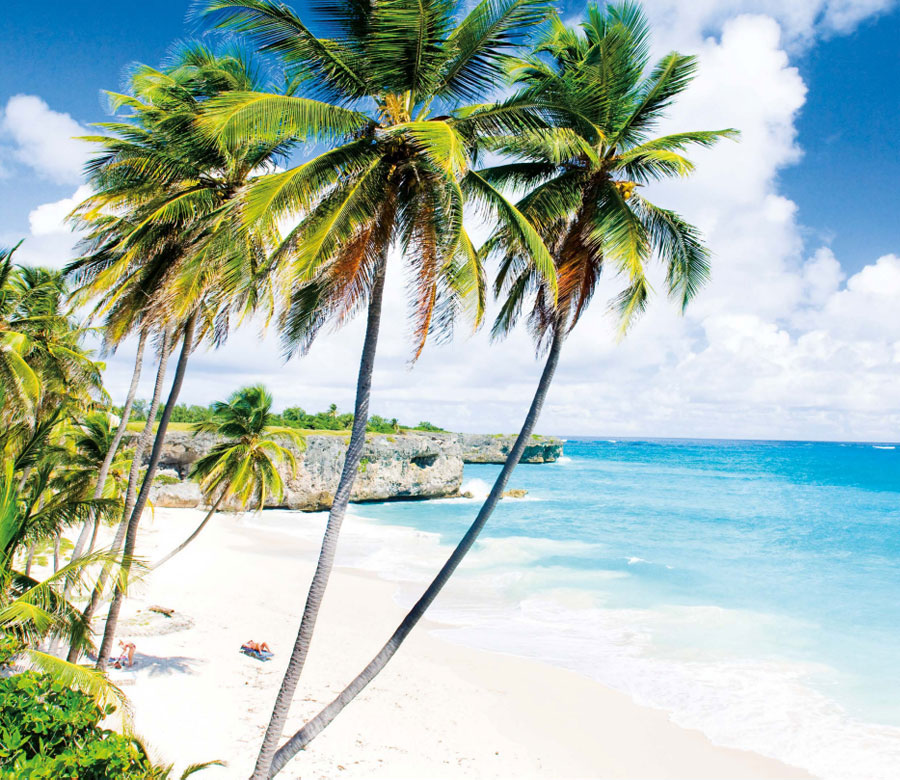
English adventurers were first attracted to the islands of the Caribbean in the early 17th century, mainly because of the prospect of finding gold, which the Spanish had plundered in great quantities from their colonies in South America. When none was found they established plantations to grow sugar cane, as refined sugar had become a valuable commodity in Europe.
The result - because growing and processing sugar required a great deal of labour - was that millions of Africans were enslaved and transported to the Caribbean. Other nations also saw the opportunities, and the Portuguese, Spanish, French and Dutch also colonised islands in the region.
Fortunately, today the Caribbean islands have thrown off this tragic past, and their sunny climate and rich mix of European and African heritage have made them a magnet for tourists. The region has dozens of idyllic islands, including Barbados, St Lucia, Jamaica, the Bahamas, the Virgin Islands, Grenada, Dominica and Antigua. More than a million British tourists visit the region each year.
You can fly direct to many destinations or choose one of the many cruises, which range from the comfortable to the luxurious. The climate is warm and sunny all year round, and the most popular months to visit are between November and June - our summer is the hurricane season in the region. The Caribbean has diverse marine ecosystems including coral reefs, vibrant local culture and some of the most delicious seafood to be found anywhere in the world.
But with so many island paradises, how do you choose which one - or ones - to visit? We’ve picked nine of the best to help you.
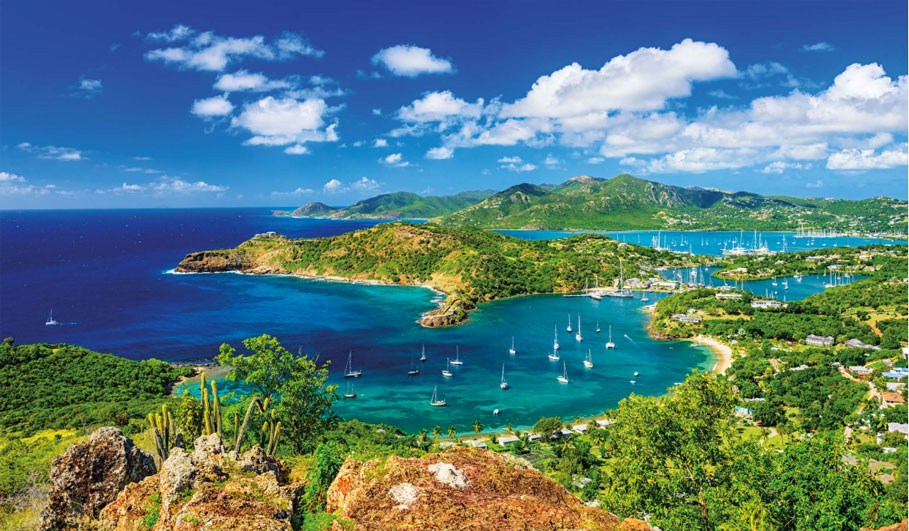
One of the two major islands that make up the nation of Antigua and Barbuda, this is another of the most ‘British’ destinations in the region. It has stylish, upmarket hotels and guesthouses and is ringed with coral reefs - the island is also renowned for the many sandy beaches around its 95 miles of coastline.
At English Harbour, you will find the restored Nelson’s Dockyard, which the hero of the Battle of Trafalgar made his base in the 1780s. It includes a marina and an intriguing museum. Trails lead up to Shirley Heights, a former military lookout with panoramic views.
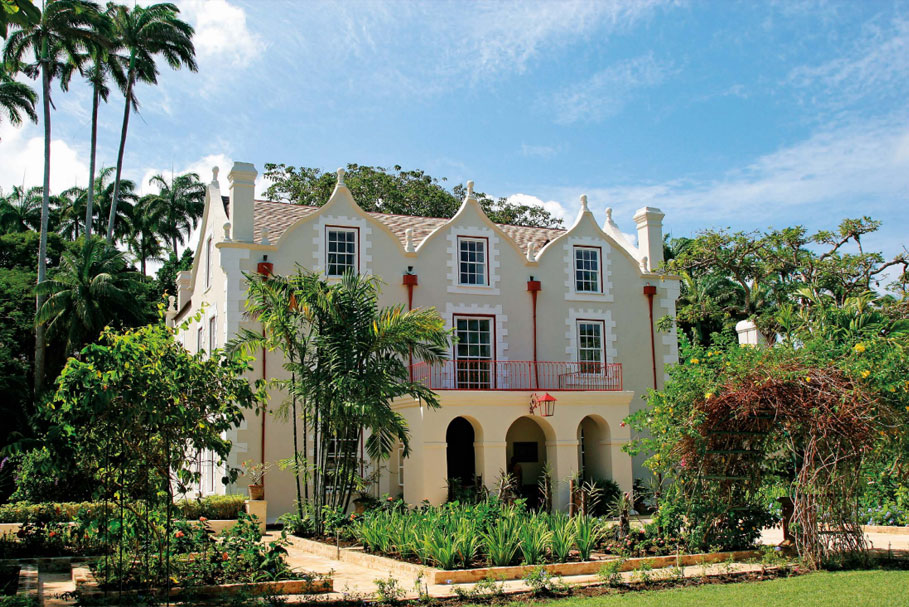
This eastern Caribbean island was colonised by the English in 1627. It has been independent since 1966 but remains in the Commonwealth. The capital, Bridgetown, is a cruise ship port, and its historic colonial buildings are a Unesco World Heritage site.
The island is dotted with golden beaches, lush botanical gardens and 17thcentury plantation houses such as St Nicholas Abbey. Given its heritage, it’s little wonder that local traditions include tea and cricket. It’s also possible to take a ferry (around three hours) to St Lucia, or island hop in a small plane.
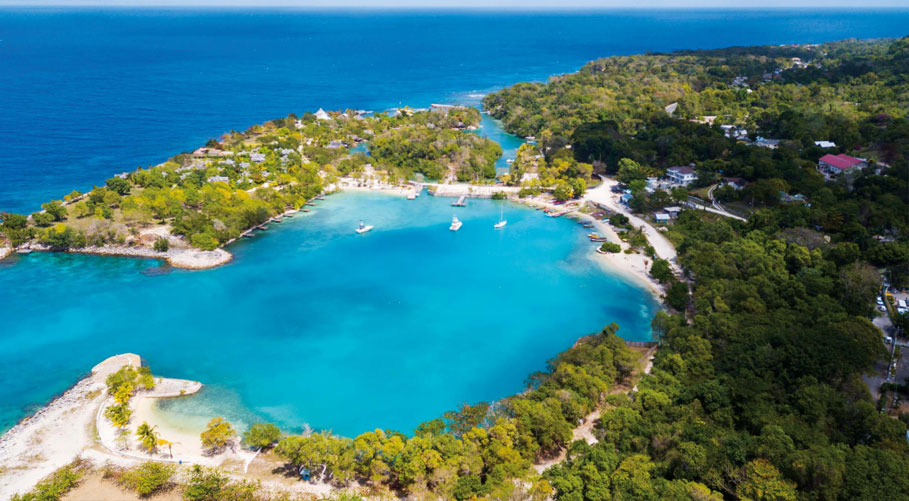
The third largest island in the Caribbean is a firm favourite with today’s celebrities, including Beyoncé and Prince Harry. But its lush rainforests, mountains and reef-lined beaches have attracted the wealthy for decades - including the author Ian Fleming and the playwright and musician Noël Coward. Fleming’s James Bond has become so famous that the Jamaica Tourist Board named a beach after him.
While on holiday at Fleming’s Goldeneye estate, Coward bought a house just along the coast. By 1955, however, it was becoming too busy for him to work, so he had a simple house built nearby. He called it Firefly after the glowing insects that filled the air at night.
Coward died there in 1973 and his grave is in the garden. Firefly has now been restored to how it would have looked in his day and is open to the public as a museum.
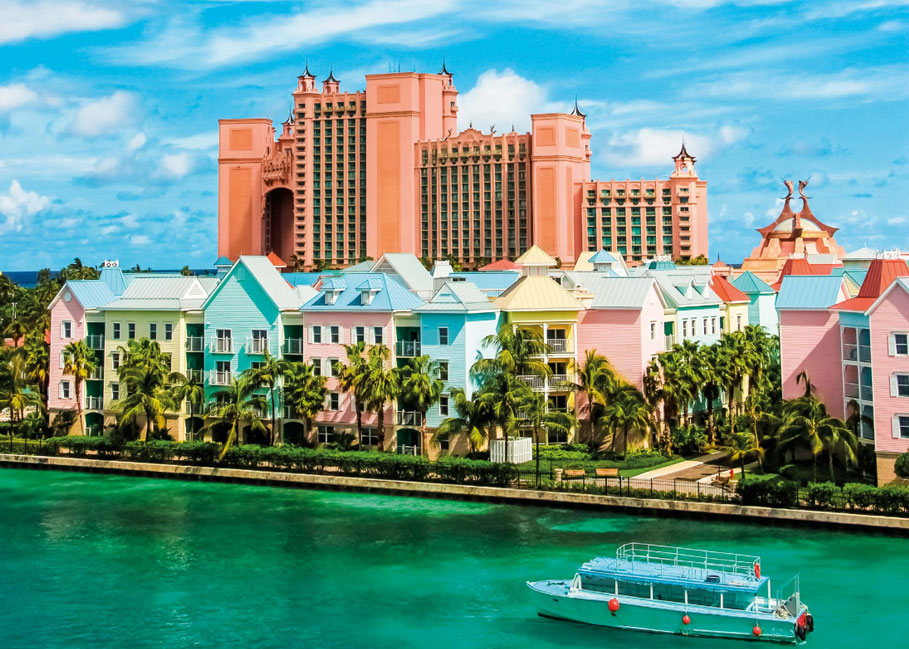
Officially titled the Commonwealth of the Bahamas, this island country was a British colony from 1718 until independence in 1973. It has 16 major islands, including New Providence, home of the capital, Nassau, surrounded by 100,000 square miles of what its tourist office claims is the world’s clearest ocean.
The calm waters of the Exumas islands are a classroom for teams of young sailors keeping the tradition of Bahamian sloop sailing alive. They are also home to one of the country’s quirkiest attractions - swimming with pigs. At Pig Beach (officially known as Big Major Cay) there is a colony of feral but friendly pigs who are happy to swim in the sea with tourists.
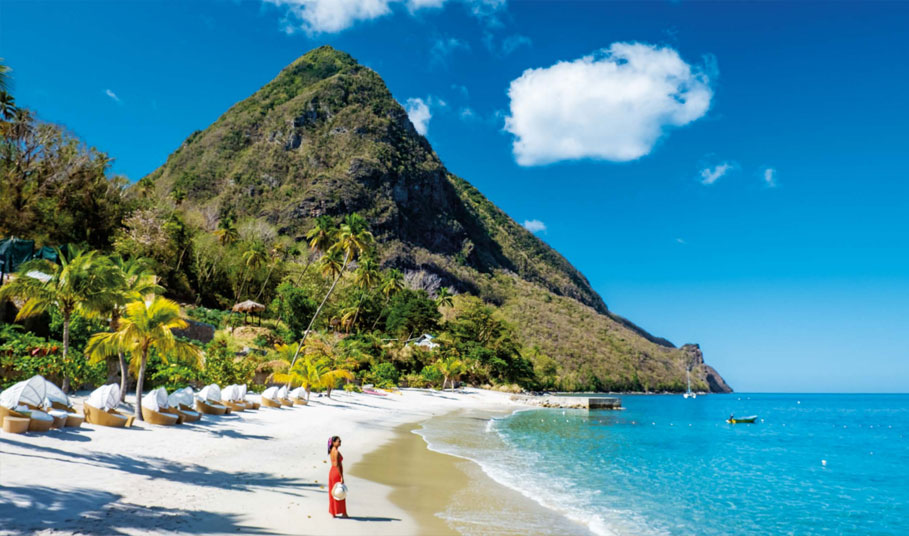
With its dramatic mountainous Pitons and glorious views, this tiny island has become a popular destination for honeymooners - and anyone else seeking a romantic getaway in the sun.
The coast boasts volcanic beaches, reef-diving sites, luxury resorts and fishing villages. The capital, Castries, is a popular cruise spot and there are trails to its interior rainforest, culminating in waterfalls such as the sensational 15 metretall Toraille, which spills over into glorious gardens.
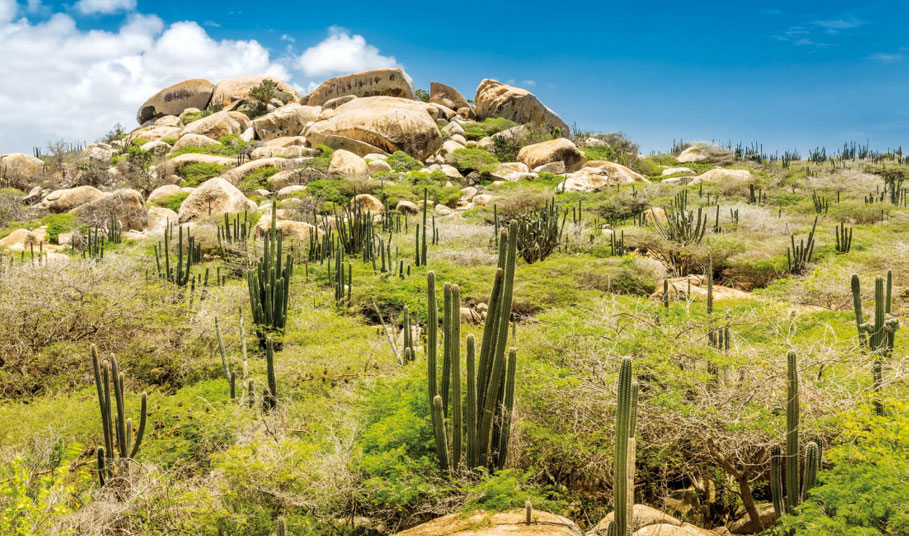
Just off the coast of Venezuela, in the south of the Caribbean, lies Aruba, a tiny island just 21 miles long and six miles wide. It was colonised by the Dutch in 1636 and is still part of the Kingdom of the Netherlands.
It is an island of two intriguing halves: the wild east coast includes Arikok National Park, with its arid landscapes and dramatic caves, while the west coast, which is home to the lively capital Oranjestad, has calmer white-sand beaches. On Renaissance Island, just off the coast, there is a small colony of flamingos.
Inland, the town of San Nicolas - once home to one of the world’s biggest oil refineries - has now been revived, with a lively annual art festival each September.
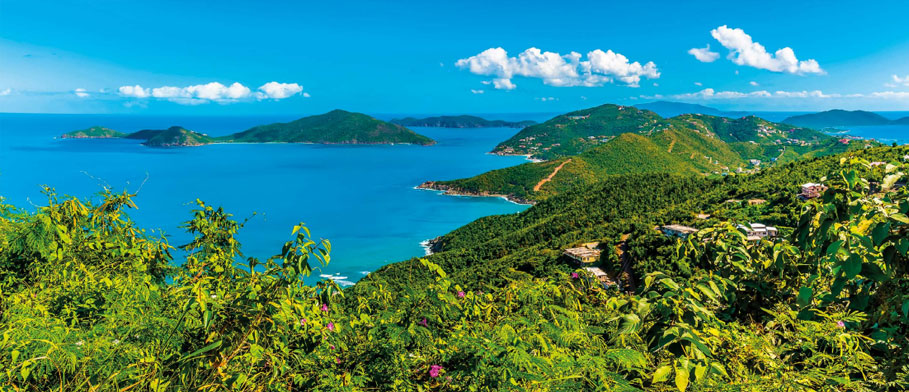
Part of a volcanic archipelago, this glorious British Overseas Territory is made up of four main islands and many smaller ones. It is best-known for its reeflined beaches and as a yachting destination.
The largest island, Tortola, is home to the capital, Road Town, and the beautiful rainforest of the Sage Mountain National Park. On Virgin Gorda island is the Baths, a dramatic labyrinth of huge boulders.
The most famous island, however, is Necker, a 30 hectare (75 acre) island north of Virgin Gorda entirely owned by Richard Branson. It’s possible to stay there if you have very deep pockets.
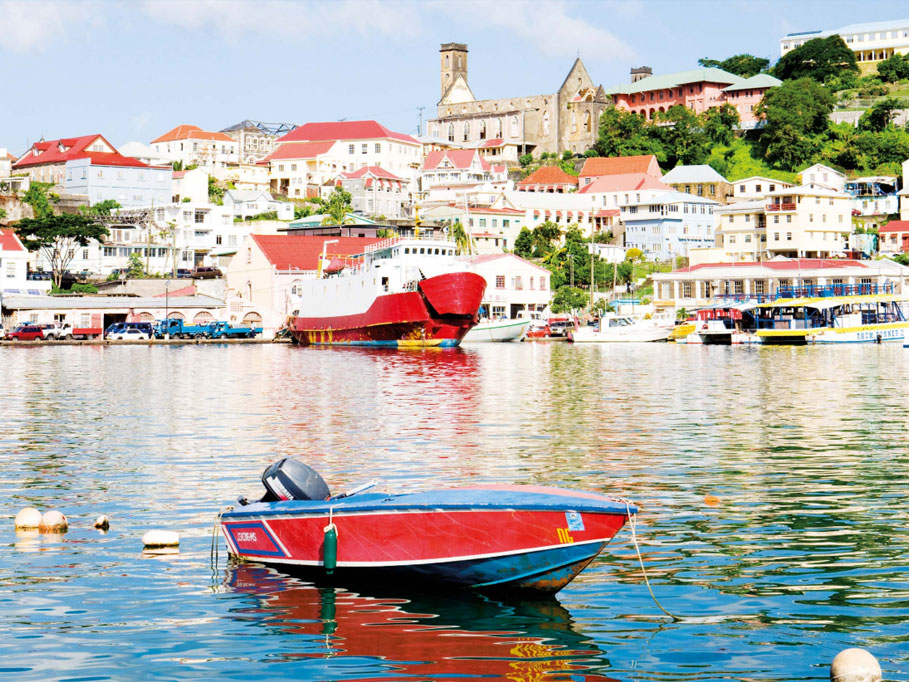
Dubbed the ‘Spice Isle’, the hilly island of Grenada - which is also the collective name for the surrounding islands that form the country - is famous for its nutmeg plantations. It is also the site of the capital, St George’s, where colourful homes, Georgian buildings and early 18th-century Fort George overlook Carenage harbour. One of the town’s most luxurious resorts is the boutique Calabash hotel, managed by Relais & Chateaux, which is in one of the most secluded and unspoiled spots on the island. Its new Cocoa and Spice Connoisseur Package takes guests on a fascinating tour of a family-run organic cocoa estate, culminating in a private beach dinner featuring innovative cocoa and spice pairings.
Also look out for Spicemas, the crown jewel of Grenada’s festival calendar. This carnival is held every August, and is an electrifying celebration that fills the capital with the vibrant rhythms of soca and calypso music, performed by bejewelled dancers.
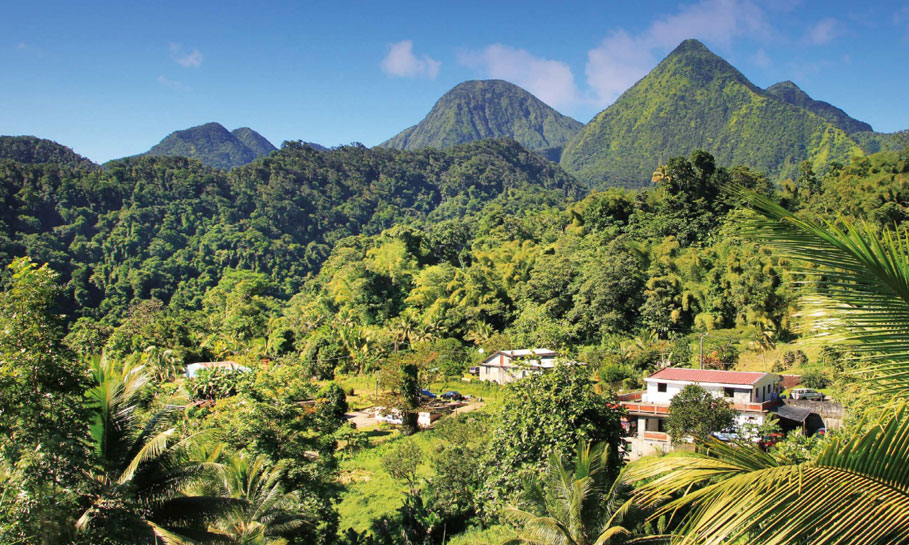
This little beauty is a volcanic island with natural hot springs and tropical rainforests. Morne Trois Pitons National Park, a Unesco World Heritage Site, is home to the naturally heated Boiling Lake.
The park also features sulphur vents, the 65m-tall Trafalgar Falls and narrow Titou Gorge. To the west is Dominica’s capital, Roseau, with colourful timber houses and botanical gardens.
It was first colonised by the French in the 17th century but was ceded to Britain in 1763, so although many of the place names are French, the national language is English. Jean Rhys, the author of Wide Sargasso Sea, was born in Dominica, and the island also featured in the Pirates of the Caribbean films.








